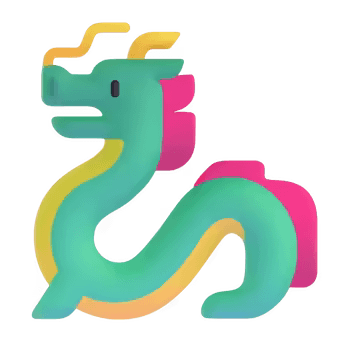dragon
dragon, 용
Dragons are important mythical creatures in both Eastern and Western cultures. In the East, they symbolize good luck and power, while in the West, they frequently appear in adventure stories.
In Korean folktales and fairy tales, dragons are depicted as magnificent creatures that fly in the sky. They are mystical beings that bring rain and rule the sea.
용은 동양과 서양의 문화에서 모두 중요한 상상 속 동물입니다. 동양에서는 행운과 힘을 상징하고, 서양에서는 주로 모험 이야기에 등장합니다.
한국의 민담이나 동화에서 용은 하늘을 나는 멋진 동물로 나옵니다. 용은 비를 내리게 하고 바다를 다스리는 신비한 존재입니다.


Dragons hold vastly different appearances and meanings in Eastern and Western cultures. Eastern dragons, with their horns and scale-covered bodies, are considered divine beings, symbols of the emperor, and bringers of good fortune. They are frequently seen in palace decorations and paintings, particularly in Korea, China, and Japan.
Western dragons are typically depicted as dangerous monsters that knights must defeat. However, recent movies and games portray dragons in more diverse roles. In works like Harry Potter or those featuring dragon riders, there are many stories where dragons and humans become friends.